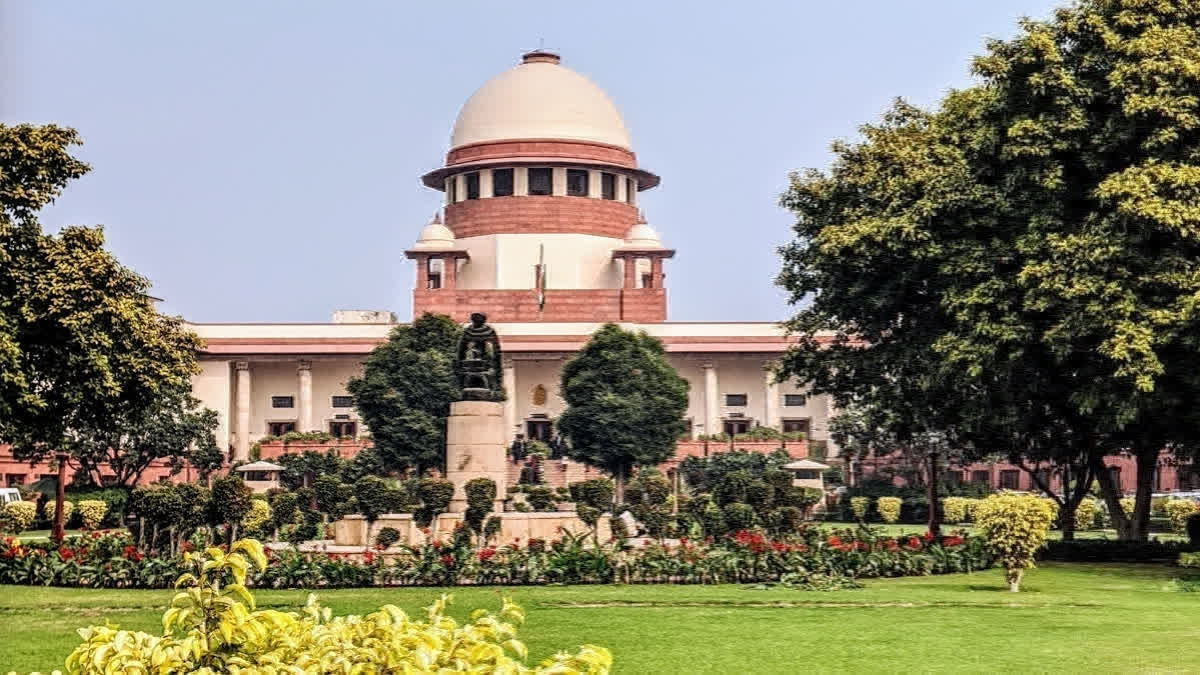New Delhi: Chief Justice of India D Y Chandrachud on Friday said time has come for the country to take lead in fostering a culture of international arbitration, providing a level playing field for dispute resolution beyond domestic courts.
He said respect for the rule of law promotes fairness, stability and predictability which in turn creates a conducive environment for economic growth as investors thrive in a system where rights are protected, contracts are enforced and disputes are resolved efficiently.
Speaking at a conference on international arbitration and the rule of law here, Justice Chandrachud said a strong rule of law framework also encourages foreign investment, promotes trade and enhances a nation's global competitiveness, ultimately driving sustainable economic development and improving living standards.
"The rule of law shares a symbiotic relationship with the creation of an environment which fosters economic stability and growth. Rule of law principles are, in other words, the virtual semi-conductors of our digital era," he said. The CJI said the International Monetary Fund (IMF) has predicted a seven per cent growth in GDP for India for 2024-25, making the country rank at the virtual top of the ladder, and the World Bank has followed the suit.
He also referred to figures about gross foreign direct investment inflows in India as well as the overseas direct investment. "The time has come for India to take the lead in fostering a culture of international arbitration, providing a level playing field for dispute resolution beyond domestic courts," Justice Chandrachud said.
He said by establishing robust institutional frameworks, India can champion the growth of arbitration in the global South, promoting a fair, efficient and reliable means of resolving commercial disputes. The CJI said on the legislative side too, Parliament has initiated efforts to revamp the Arbitration and Conciliation Act of 1996.
"To this end, the Ministry of Law and Justice has established a committee to review the effectiveness of the Act and suggest amendments. The committee has submitted its report, which is now being acted upon by the ministry, paving the way for potential reform," he said. The CJI said there was a time "when we were fearful of investor-state arbitration".
"And the reason for that was very simple. We lacked the professionalisation which was required to deal with investment disputes between states and between investors and states," he said, adding, "That environment has changed with the growing professionalisation of arbitration in India". Justice Chandrachud said as arbitration gains traction as a preferred mode of dispute resolution, related litigation is increasing before the courts requiring judges with specialised expertise.
He said members of the bar with extensive experience in conducting arbitrations and appearing in arbitration related cases have been appointed as judges of the high courts in the last few years. The CJI said the theme of this conference is particularly significant.
"The arbitration community across the world often emphasises the importance of commercial efficiency and ease of business, but these values are inextricably linked to a deep respect for the rule of law. Put simply, the rule of law heralds better economic and commercial outcomes," he said. Besides the CJI, apex court judge Justice Sanjiv Khanna, Attorney General R Venkataramani, Supreme Court Bar Association president and senior advocate Kapil Sibal, Secretary General of the Permanent Court of Arbitration (PCA) Marcin Czepelak and others also addressed the gathering.
Speaking at the conference, Justice Khanna said arbitration is a leading method for resolution of commercial and international disputes. "In line with these global trends, India has enacted several reforms to position itself as an arbitration friendly jurisdiction, resulting in notable improvements in contract enforcement and ease of doing business," Justice Khanna said.



